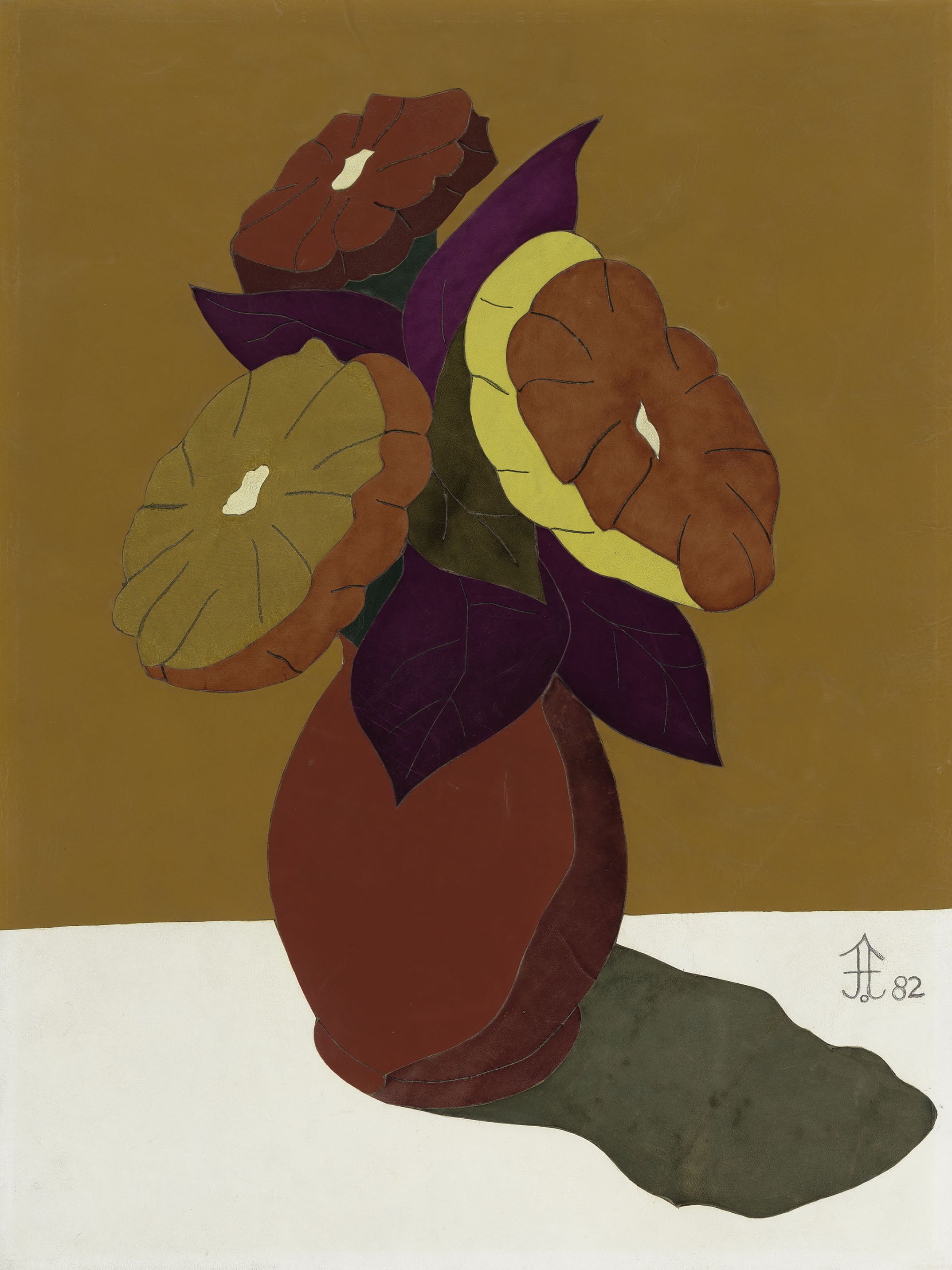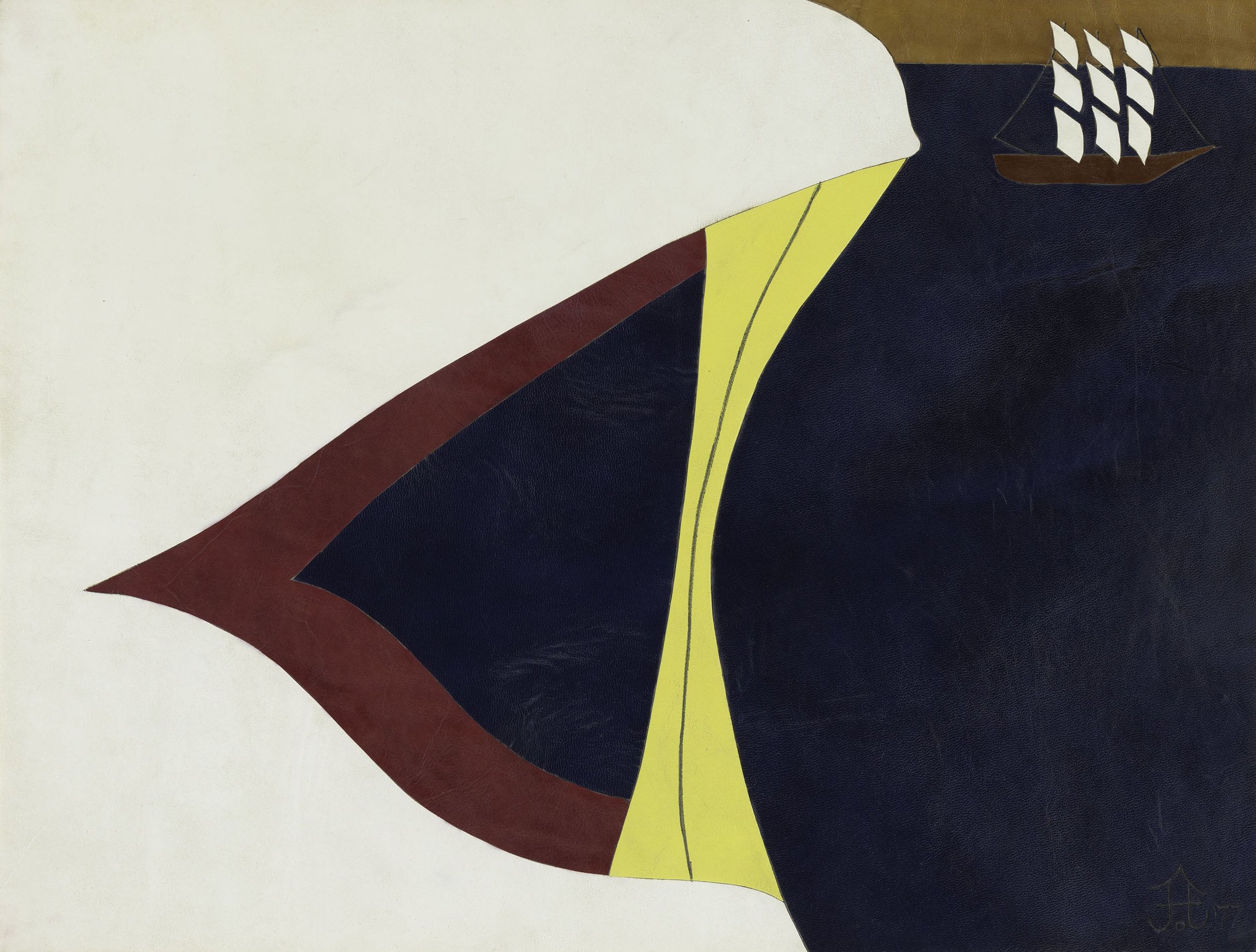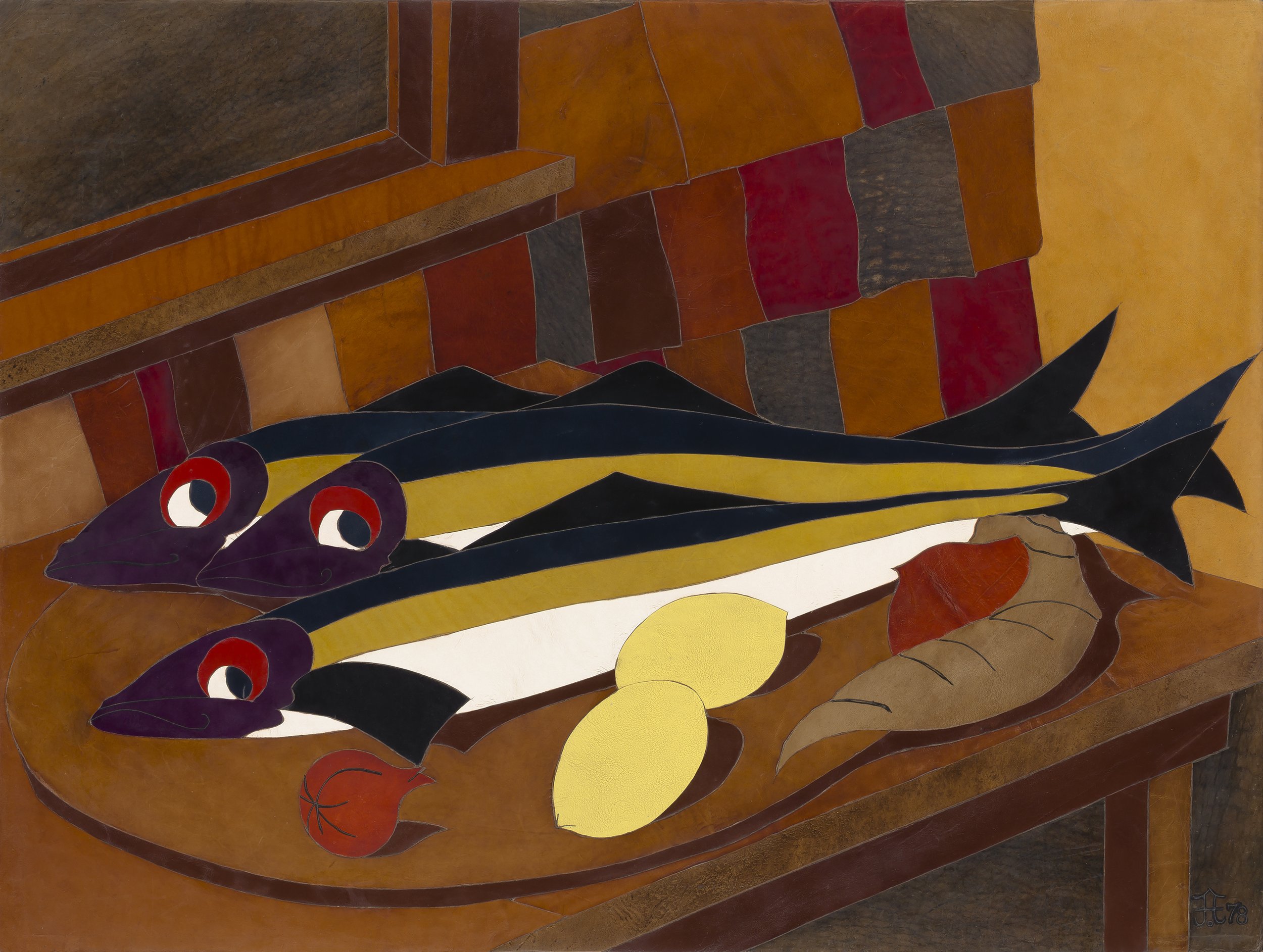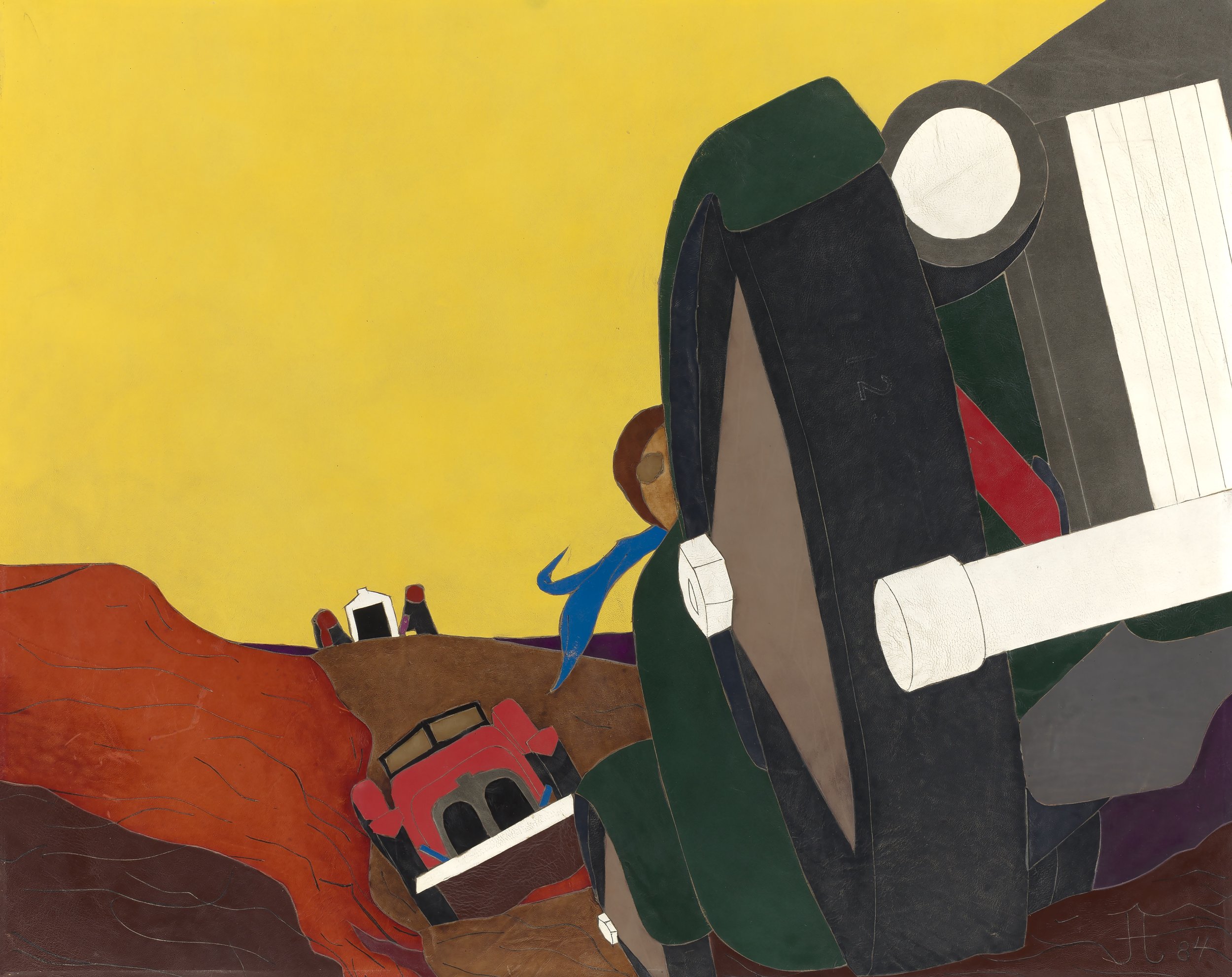Frank Diaz Escalet (1930-2012)
About Frank Diaz Escalet
Almost entirely self-taught, Puerto Rican-born Frank Diaz Escalet was a painter and master leathercrafter, and developed his own technique for creating images out of cut leather that vividly capture the dynamics of a scene. Escalet was filled with a desire to make things from a young age, and picked up what he knew about creating art wherever he could. His story is one of invention, adversity, and resilience, but perhaps more than anything else, curiosity was the true wellspring of his work.
Born in Puerto Rico, Escalet grew up in a poor, immigrant family in New York City. He dropped out of school after eighth grade to help support his family, and served in the Air Force in the 1940s and 1950s. Back in New York, Escalet worked in a gas station, and learned metalworking from a customer. He opened a leather shop in Greenwich Village called The House of Escalet, and by the early 1960s, he had developed a celebrity clientele, designing and creating leather garments for Sly and the Family Stone, The Rolling Stones, Gary Puckett and the Union Gap, and Aretha Franklin. In 1971, Escalet moved his family to Eastport, Maine, and lived there for 11 years until moving to Kennebunkport where he reestablished The House of Escalet as a gallery and studio.
Escalet began making his inlaid leather compositions in 1974, after several years of struggling to make a living in Maine. Drawing on memories and personal experiences, he created innovative works that tell the stories of his life and the lives of those around him, and reflect the experiences of immigrants and people of color. He began painting consistently in the mid-1980s and started working in sculpture using found metal pieces scavenged from building sites in the late-1980s. In 1988, he was featured on La Plaza, a PBS program targeted at Latinos, which brought him to the attention of curators around the country. Escalet began exhibiting widely through multiple one-person and group shows at colleges and universities in the 1990s. In a 1996 interview with The Boston Globe, he acknowledged the perseverance required to gain this recognition: “I have quite a track record as far as achieving things, although it wasn’t quite mapped out for me. The road wasn’t even paved.”
Escalet's work has been placed in important private collections around the country and is represented in the collection of Farnsworth Art Museum, Rockland, Maine.




